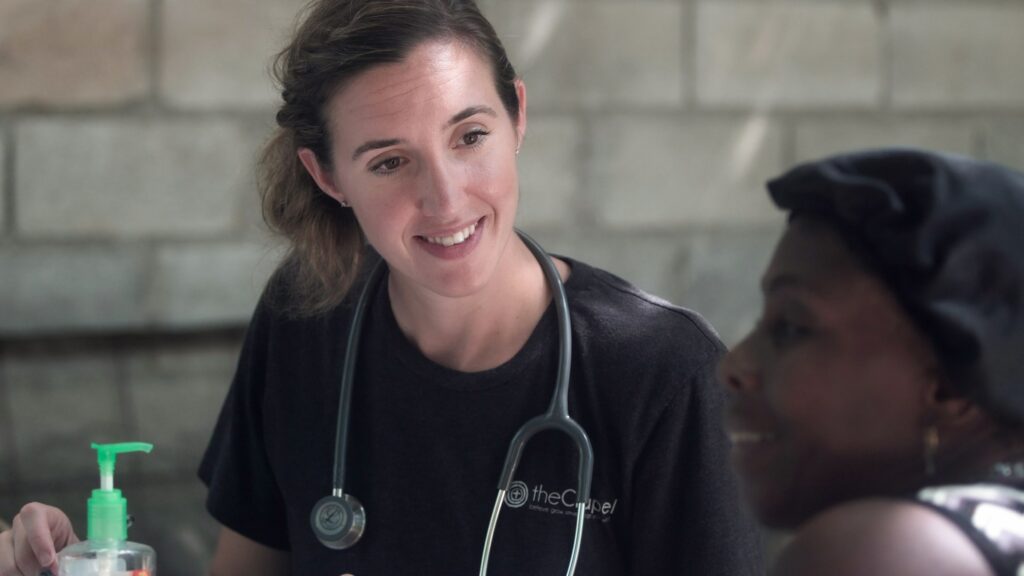The demand for healthcare professionals who can provide services across different locations has skyrocketed as the world becomes increasingly interconnected.
Enter the travel nurse—a modern-day healthcare hero who combines their passion for nursing with an insatiable wanderlust.
If you’re considering embarking on this exhilarating career path, buckle up because this comprehensive guide will take you through the ins and outs of how to become a travel nurse.

Embracing the Nomadic Lifestyle
Imagine waking up to the breathtaking vistas of the Rocky Mountains one month and the next, immersing yourself in the vibrant culture of a bustling city like New York. As a travel nurse, your office is the world, and your job is to bring your expertise and compassion to needy communities. This unique profession offers an unparalleled opportunity to explore new horizons while making a profound impact on the lives of others.
What is a Travel Nurse?
A travel nurse is a registered nurse who works on short-term assignments at various healthcare facilities nationwide or internationally. These assignments typically last 8 to 26 weeks, allowing travel nurses to experience different work environments, learn new skills, and explore diverse locations.
The Perks of Being a Travel Nurse:
Higher Pay
Travel nurses often earn significantly more than their staff nurse counterparts. Some assignments offer up to $3,000 per week, and it’s not uncommon for travel nurses to earn six-figure salaries, especially when factoring in bonuses and overtime. This financial stability allows travel nurses to enjoy their adventures without worrying about their finances.
Flexibility
One of the most appealing aspects of travel nursing is its flexibility. Travel nurses can choose their assignments, locations, and the length of their contracts. This flexibility allows them to tailor their work schedules to fit their personal lives, take longer breaks between assignments, and even select assignments based on personal interests or travel goals.
Adventure
For adventurous people, travel nursing is a dream come true. Travel nurses get paid to explore new cities, experience different cultures, and create unforgettable memories. Whether it’s the bustling streets of New York City or the serene landscapes of the Pacific Northwest, each assignment offers a new adventure.
Professional Growth
Working in various healthcare settings exposes travel nurses to various patient populations and medical conditions, enhancing their skills and adaptability. This diverse experience is invaluable for professional growth and can make travel nurses more competitive candidates for future job opportunities.
Building Your Professional Network
Travel nursing allows you to meet new colleagues, fellow travellers, and recruiters, expanding your professional network nationwide. These connections can lead to lifelong friendships and valuable professional contacts that may open doors to future opportunities.
Stipends and Other Perks
Travel nurses receive housing stipends, travel reimbursements, per diems, and other health and dental coverage benefits. Some agencies even cover the costs of utilities and provide free or reduced-price housing, making the relocation logistics much easier.
Choice of Contracts
Travel nurses have control over where they work, the type of facility, the length of the assignment, and the shifts they prefer. This level of control allows them to tailor their work experiences to their personal and professional goals.
Exploring Different Areas of Nursing
Travel nursing allows you to experience various specialties and settings, helping you discover your passion within the field. Whether it’s working in a trauma centre, a teaching hospital, or a community clinic, travel nurses can explore different areas of nursing without long-term commitments.
Developing Skills Beyond Nursing
Adapting to new environments and teams enhances travel nurses’ communication, adaptability, and problem-solving skills. These skills are valuable in their professional lives and contribute to personal growth, making them more resilient and self-assured individuals.
Work-Life Balance
Travel nursing offers opportunities to improve work-life balance. Travel nurses can take longer breaks between assignments, choose assignments based on their interests, and enjoy mini-vacations during their days off. This flexibility helps prevent burnout and keeps their day-to-day life interesting.
How to Become a Travel Nurse
Becoming a travel nurse requires education, experience, and a sense of adventure. Here’s a step-by-step guide to help you get started:
Step 1: Obtain Your Nursing Degree
To become a travel nurse, you must first earn your nursing degree. You can choose between an Associate Degree in Nursing (ADN) or a Bachelor of Science in Nursing (BSN). While both degrees qualify you for travel nursing, some facilities may prefer or require a BSN.
Why a BSN Might Be Preferred
- Higher Education Standards: Many healthcare facilities are moving towards requiring a BSN due to the advanced training and broader scope of education it provides.
- Career Advancement: A BSN can open doors to more specialized roles and leadership positions within nursing.
Step 2: Gain Clinical Experience
Most travel nursing agencies require at least one year of clinical experience in your specialty before accepting you as a travel nurse. This experience allows you to hone your skills, build confidence, and prepare for the unique challenges of travel nursing.
Tips for Gaining Experience
- Specialize Early: To increase your marketability, focus on high-demand specialties such as ICU, ER, or Labor and Delivery.
- Seek Diverse Opportunities: Work in different settings, such as hospitals, clinics, and community health centres, to gain a broad range of experiences.
Step 3: Obtain Licensure
To practice as a travel nurse, you must be licensed in the state where you’ll be working. Many travel nurses opt for a compact nursing license, which allows them to practice in multiple states without obtaining individual licenses for each state.
Compact Nursing License
- Benefits: A compact license simplifies moving between states and reduces the paperwork and fees associated with obtaining multiple state licenses.
- Eligibility: Ensure you meet the requirements for a compact license, typically holding a primary residence in a compact state and having an active, unencumbered nursing license.
Step 4: Find a Reputable Travel Nursing Agency
Partnering with a reliable travel nursing agency is crucial for finding the best assignments and receiving support throughout your journey. Research various agencies, read reviews, and ask for recommendations from experienced travel nurses to find the right fit for you.
Choosing the Right Agency
- Research and Reviews: Spend time online learning about different agencies. Read blogs, watch videos, and join groups to network with other nurses currently on assignment.
- Agency Benefits: Look for agencies that offer competitive pay, comprehensive benefits, and strong support systems. Some agencies provide housing support, travel reimbursements, and 24/7 assistance.
Step 5: Prepare for Your First Assignment
Once you’ve secured your first assignment, it’s time to prepare for your big adventure. This includes arranging housing and transportation and familiarizing yourself with your new location and healthcare facility.
Preparation Tips
- Research Your Destination: Learn about the local culture, weather, transportation options, and the best places to eat and visit. It will help you feel more comfortable and prepared for your new environment.
- Secure Housing: Ensure you have a comfortable and safe place to stay. Options include corporate housing, extended-stay hotels, or furnished apartments.
- Pack Smart: Pack clothing and essentials for both work and leisure. Don’t forget important documents like your nursing license, certifications, and identification.
- First-Day Preparation: Familiarize yourself with the facility, review your job responsibilities, and introduce yourself to your colleagues. Arriving early and being prepared can help you make a positive first impression.

Challenges of becoming a Travel Nurse:
- Adapting to New Environments: With each assignment, travel nurses must quickly adjust to new work settings, healthcare systems, and facility policies.
- Building Rapport with Patients and Staff: Developing trust and rapport with patients and colleagues can be challenging due to the short-term nature of assignments.
- Lack of Job Security: The constant need for new assignments can lead to uncertainty and stress about future work.
- Housing and Relocation: Securing suitable short-term housing in unfamiliar locations is often stressful and time-consuming.
- Loneliness and Isolation: Being away from family and friends for extended periods can lead to loneliness and isolation.
- Navigating Different Hospital Systems: Adapting to various electronic health record systems and protocols at each facility can be challenging.
- Dealing with Burnout: Irregular hours, heavy patient loads, and the demands of travel nursing can contribute to burnout.
- Managing Finances: Handling taxes, insurance, and retirement planning can be more complicated for travel nurses due to varying incomes and working across multiple states.
- Maintaining Licensure and Continuing Education: It is complex and demanding to keep up with licensing requirements and continuing education across multiple states.
- Overcoming Workplace Conflicts: Travel nurses may encounter conflicts or high-stress situations in understaffed facilities or when adapting to new teams.
Conclusion:
Becoming a travel nurse is an exciting and rewarding career path that offers endless personal and professional growth opportunities. By following the steps outlined in this guide and partnering with a trusted travel nursing agency, you’ll be well on your way to embarking on the adventure of a lifetime. So, pack your bags, embrace the unknown, and get ready to make a difference in the lives of patients across the country!
Frequently Asked Questions:
How long does it take to become a travel nurse?
Typically, it takes 2-4 years to earn your nursing degree and an additional year to gain the required clinical experience.
Can I bring my family or pets with me on travel nursing assignments?
Yes! Many travel nurses bring their families or pets along. Discuss your needs with your travel nursing agency to ensure they can accommodate your requests.
How do travel nurses find housing?
Travel nursing agencies often provide housing or stipends to cover housing costs. Some agencies also assist with finding suitable accommodations.




